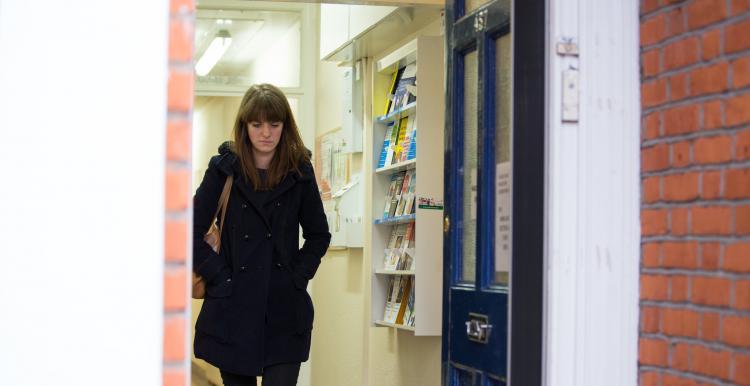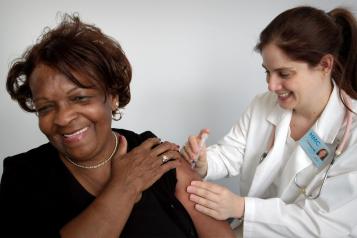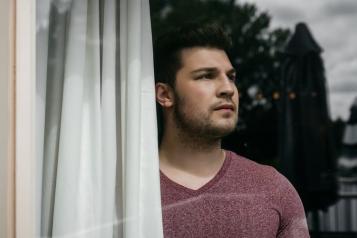Guidance for managing funerals during COVID-19

There is an increased risk of transmission of COVID-19 where families and communities come together following the death of a loved one, from any cause. While recognising the importance of these rituals and gatherings, it is strongly advised that the actions detailed in this guidance are taken to reduce the spread of infection, particularly to clinically vulnerable and clinically extremely vulnerable people who are at risk of severe illness.
To ensure that organisations managing funerals are able to facilitate the needs and wishes of families, it is important that funerals are not delayed. We understand how difficult funeral arrangements will be for families and friends of lost loved ones, however, the current guidance will remain in place for the foreseeable future as the government continue to respond to the challenges of COVID-19.
What you need to know
When gathering to mourn, your main concern should be to limit risks around the transmission of the virus. Those risks increase whenever households mix. A household means those people who usually live together under the same roof and share facilities with you. If you have family members who do not normally live with you, they need to be treated as a separate household.
These actions include:
- ensuring venue capacity and attendance numbers allow social distancing (at least 2 metres or 3 steps) to be maintained between individuals. See further detail under the section on management of the venue
- ensuring that those attending are reminded of the need to wear a face covering. See further detail under the section on social distancing for mourners
- a modest number of close friends and family of the deceased may attend although funerals should have no more than 30 people in attendance. Attendance should also be within the capacity limits of the premises so that social distancing can be strictly adhered to. In some cases that may be less than 30 people. See further detail under the section on management of the venue
- mourners who are self-isolating due to someone in their household or support bubble being unwell with symptoms of COVID-19 or as advised by NHS Test and Trace, but are not symptomatic themselves, should be facilitated to attend the funeral in person should they wish to do so, with processes put in place to minimise the risk of transmission
- mourners who are clinically vulnerable or clinically extremely vulnerable should also be facilitated to attend, with processes put in place to minimise the risk of transmission
- any mourner who has COVID-19 symptoms (a new continuous cough, a high temperature, or a loss of, or change in, their normal sense of taste or smell) should not attend the funeral as they pose a risk to others; remote participation should be considered
- mourners who have travelled to England from countries that are not exempt from the requirement to self-isolate (in the last 14 days) may attend the funeral
- mourners should also follow the advice on social distancing when travelling to and from the funeral gathering. See the section on travelling to and from the funeral
For the position of what is lawful, you should refer specifically to the Regulations; further information is available in the Staying alert and safe (social distancing) guidance.
Who can attend?
The grieving process and related formal and informal rituals through which we mourn the passing of loved ones are important for the health and wellbeing of the bereaved. Interruption of this process is linked with negative impacts on both the physical and mental health of the bereaved.
It is advised only a modest number of family and friends of the deceased should travel to and attend the funeral. Overnight stays away from the home are also permitted, though it is advised this should only be with your own household or support bubble, or with members of one other household (in which case social distancing should be maintained).
Mourners coming from outside England
Mourners coming into England who have travelled to England from countries that are not exempt from the requirement to self-isolate (within the last 14 days) are required to self-isolate for 14 days from the day they were last in a non-exempt country. However, such mourners can leave their place of self-isolation in limited circumstances including on compassionate grounds. This includes attending a funeral.
The mourner can only leave their place of self-isolation when attending the funeral and is otherwise expected to self-isolate for the remainder of the 14-day period unless another exemption applies.
Mourners who are symptomatic
Anyone showing symptoms of COVID-19 (a new continuous cough, a high temperature or a loss of, or change in, their normal sense of taste or smell) should not attend the funeral due to the risk that they pose to others; remote participation should be considered, for example, via live streaming.
Anyone showing symptoms of COVID-19 should immediately self-isolate at home for at least 10 days and request a test online, or by contacting NHS 119 via telephone if they do not have internet access.
Mourners who are self-isolating due to a possible case of COVID-19 in their household
Mourners of the deceased person may include those who are self-isolating due to another member of the household or support bubble being unwell with symptoms of COVID-19 or as advised by NHS Test and Trace. Where the funeral is scheduled before the period of household or support bubble isolation has been completed (14 days from when the first person in that household or support bubble started showing symptoms) mourners who are self-isolating should be facilitated to attend.
Mourners who are from a household or support bubble that is self-isolating should:
- not attend if they have any symptoms of COVID-19, even if these are very mild
- maintain a distance of at least 2 metres (3 steps) between themselves and others.
- advise the other mourners that they are otherwise still within the 14-day isolation period, and ensure that they do not attend at the same time as another mourner who may be clinically vulnerable or clinically extremely vulnerable
- only break self-isolation when attending the funeral and otherwise continue to self-isolate
- practise strict hand and respiratory hygiene:
- wash their hands more often than usual with soap and water for at least 20 seconds, or use a hand sanitiser
- avoid touching their eyes, nose, and mouth
- cover their coughs or sneezes. Guidance for households with possible coronavirus infection is available
Mourners who are from a household or support bubble that is self-isolating must wear a face covering by law when attending indoor places of worship, crematoria and burial ground chapels unless exempt for health, disability or other reasons.
Mourners who are clinically extremely vulnerable
People who are clinically extremely vulnerable should have received a letter telling them they are in this group or been told by their GP. Mourners who are clinically extremely vulnerable should be facilitated to attend, should they wish to do so, but have been advised that they should minimise their contact with people outside their household or support bubble for their personal protection.
While shielding advice remains in place they are advised not to attend at the same time as mourners who are otherwise self-isolating due to being household or support bubble or non-household contacts of a case, as they could be incubating disease.
Mourners who are clinically extremely vulnerable should maintain strict social distancing and follow the latest guidance available.
Actions to reduce their risk of infection could include:
- advising other attendees that there is a clinically extremely vulnerable person attending and reiterating the need to stay at home if they are unwell with symptoms of COVID-19, and to be respectful of the vulnerable person’s need to avoid close contact at any point
- advising the mourner to travel to the venue via the safest route possible, preferably in a car by themselves, or with someone from their household or support bubble
- considering the additional risk involved if attending the funeral requires travelling by public transport
Mourners who are clinically vulnerable or clinically extremely vulnerable should adhere to rigorous hand and respiratory hygiene measures at all times, but particularly while out of the home environment. Hand sanitiser or sanitising wipes should be used regularly while outside of the home. A face covering must be worn by law when in indoor places of worship, crematoria and burial ground chapels unless exempt for health, disability or other reasons.
Further information is available in the guidance on shielding and protecting people who are clinically extremely vulnerable from COVID-19.
Travelling to and from the funeral
Mourners should also follow the advice on social distancing when travelling to and from the funeral. Wherever possible, mourners should travel to the venue in a car by themselves or with people from their household or support bubble (if applicable). If this is not possible and funeral transport is required:
- the number of people in each car should be kept as low as possible
- there should be good ventilation (keep the windows open)
- if possible, maintain social distance between passengers, maximising the distance through appropriate seating positions
- mourners who are not from the same household or support bubble should face away from each other
- vehicles should be cleaned regularly using gloves and standard cleaning products with particular emphasis on handles and other surfaces that passengers may touch
- the driver and passengers should wash their hands with soap and water for at least 20 seconds before and after the journey or use hand sanitiser. They should cover their mouth and nose with disposable tissues when coughing or sneezing or with the crook of their elbow if no tissues are available
- they should avoid touching their faces and dispose of used tissues in a bin immediately
If mourners are using shared transport with others that they do not normally meet and where social distancing is not possible, they should consider wearing a face covering. If public transport is necessary, mourners are advised that wearing a face covering is mandatory on public transport in England, unless you are exempt for health, disability or other reasons.
There is additional guidance on the use of face coverings.
Experiencing grief or bereavement
Whenever the loss of a friend or loved one happens, it can be an extremely difficult and challenging time. This may be even more difficult for those experiencing bereavement and grief during the COVID-19 pandemic.
Bereaved people may struggle not just with the bereavement, but with the impact of social distancing measures and the fact that they may not be able to say goodbye in the way that they would have wanted. This may be particularly hard for those living alone, and it may be harder to connect with usual support networks.
Those who are bereaved are likely to feel waves of intense emotions as they come to terms with loss. These can include sadness, guilt, shock and anger. All are common and there is no right or wrong way to feel. Grief affects everyone in different ways, but the important thing is to grieve and to have the right support to do this.
Learn more about grief and support available through the NHS, Cruse Bereavement Care which offers advice and support on dealing with bereavement and grief during the COVID-19 pandemic and ataloss.org which provides signposting and services across the UK. If you are supporting a bereaved child or young person the Childhood Bereavement Network has information and links to national and local organisations.
For more information, please visit the gov.uk website:


